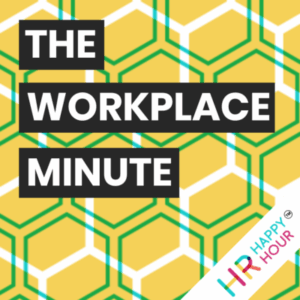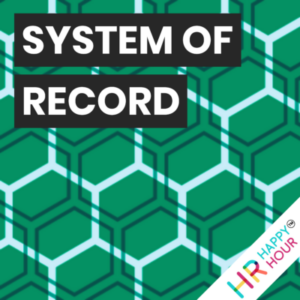Insights from Oracle CloudWorld 2023: HR Strategies for the Future
October 30, 2023
In a rapidly evolving world where businesses must adapt to ever-changing circumstances, HR practitioners, managers, and executives continually seek strategies that will lead to long-term success. At Oracle CloudWorld, Yvette Cameron’s session “5 Critical Strategies for a Decade of Success” provided invaluable insights for navigating the complex landscape of the next decade. These strategies offer a roadmap for organizations to thrive in a future of increased flexibility, evolving technology, and data-driven decision-making. HR leaders can use these strategies to define, support, and implement the transformation needed to help their organizations design their future, rather than sit back and watch as the future unfolds.
- Create Flexible Work Solutions
The concept of flexibility in the workplace is not new, but it has taken on newfound significance in recent years. As quoted in her session, approximately 80% of employees consider a position’s flexibility when deciding where to work. In a world where remote and hybrid work has become the norm, having the technology and infrastructure to support flexible work arrangements is essential.
Organizations need to invest in technology that can adapt to different work styles, ensuring employees have access to the tools they need to be productive, regardless of location. It also involves establishing clear policies and communication channels to support remote and hybrid work. While technology like AI-powered scheduling tools play a crucial role in enabling this flexibility, the organizational culture and policies are what bring it to life.
- Drive a Culture of Connection
The transition to a variety of work environments has posed challenges when it comes to fostering a sense of connection and belonging within an organization. In Yvette Cameron’s session, she highlighted the importance of creating a culture that transcends physical boundaries. This culture is “driven by technology but executed by humans.”
Forming this connection involves more than just video meetings and instant messaging. It’s about creating opportunities for meaningful peer-to-peer interactions and feedback. In the workplace, it’s vital that employees feel heard, seen, and understood, and organizations are challenged with leveraging the right technology to facilitate these connections while also nurturing an environment where employees are encouraged to engage and collaborate. The importance of connection can’t be overstated because “connection is culture.”
- Make Data-Driven Decisions
Data has become the lifeblood of modern organizations, and Yvette stressed the significance of data-driven decisions, especially when change is the only constant. Data can provide invaluable insights into various aspects of an organization, from employee performance to market trends. By harnessing the power of data, HR employees will gain a deeper understanding of their workforce, identify areas of improvement, and make informed decisions that propel the company forward.
It’s important to recognize the role of HCM technology in connecting data, which is often messy, unstructured, and opaque, to the coherent, relevant, and compelling stories that HR leaders must craft in order to help support decision-making and drive positive outcomes. There is a direct through line from the intelligent application of tools like Dynamic Skills and Payroll Analytics to better and faster decisions and results.
- Embrace Technology as Part of the Team
Technology is not just a tool; it can be a valuable member of your team. According to Yvette, organizations have found that the efficiencies gained from generative AI and other advanced technologies exceed their initial expectations. These technologies can automate routine tasks, enhance decision-making, and free up human resources for more strategic and creative endeavors.
Embracing technology as a team member means integrating it into your workflow seamlessly. It involves investing in AI, automation, and other digital tools to enhance productivity and reduce errors. The role of humans in this partnership is to set the strategic direction, interpret and act on the insights generated by technology, and continually refine and optimize the tools in use. Technology does not have to replace workers, it can augment, supplement, and elevate people at work.
- Prioritize Becoming a Skills-Driven Workforce
In a decade marked by rapid changes in technology and market dynamics, organizations must prioritize becoming skills-driven. Focusing on developing and utilizing skills as the central driver of workforce strategy is essential to all departments. To achieve this, organizations should invest in robust learning and development programs, support upskilling and reskilling initiatives, and encourage a growth mindset among employees. It’s also essential to build a framework for identifying, assessing, and managing the skills within your organization – technology like Oracle Dynamic Skills can support these efforts. By doing so, you can better position your workforce to respond effectively to shifts in the business landscape.
Yvette Cameron’s session at Oracle CloudWorld 2023 provided a blueprint for HR to navigate the next decade successfully. The five critical strategies described above encapsulate the key elements of building a resilient, adaptable, and thriving organization in a world of constant change.
The Oracle Cloud HCM solutions provide many opportunities to implement these strategies in your workplace. As part of the Oracle ME platform, the new feature, Oracle Celebrate, encourages the peer-to-peer interaction necessary for meaningful workplace communication right in the flow of work, and Oracle Workforce Scheduling provides an AI-powered option for employee scheduling by utilizing knowledge of skills, hours, qualifications, and other data points to manage labor efficiently.
In a world where the only constant is change, these strategies will serve as your compass, guiding your organization toward a decade of success, growth, and resilience. Embrace them, integrate them into your organizational culture, and watch your workforce thrive.
How we can help
Led by Trish Steed and Steve Boese, H3 HR Advisors harnesses over 40 years of experience to delivery HCM insights and guidance to global organizations.
H3 HR Advisory services
By leveraging technology, analytics, and our deep industry knowledge we can help you to reposition your workforce and ensure that you have the right people with the right capabilities in the right roles to positively impact the growth of your business.
HR Happy Hour Podcast Network
Created in 2009, The HR Happy Hour Show is hosted by Steve Boese and Trish Steed and is the longest continuously running internet radio show and podcast on Human Resources, HR Technology, Talent Practices, Workplace and Leadership topics.
H3 HR Speaking Services
We work closely with every client to customize your content - keynotes, webinars, research, infographics, and buyer’s guides - to inspire, educate and inform the audience enabling you to reset and realign your organization for a talent-led breakthrough.
Get in touch
Talk to us today and find out how we can help you and your organization leverage HCM technology to attract, onboard, retain and manage top talent.




